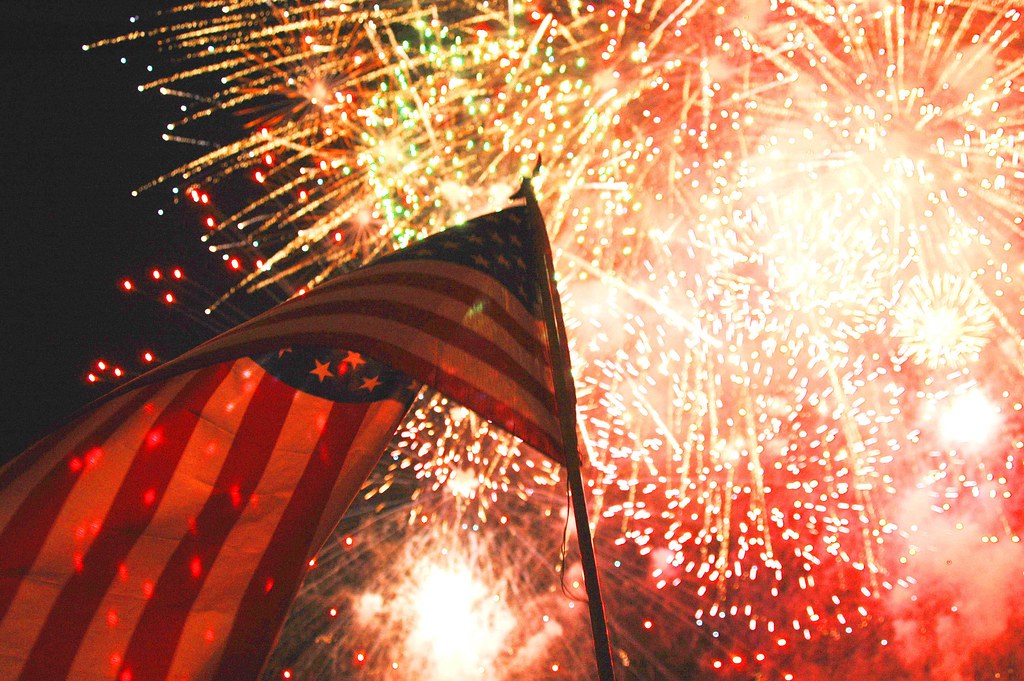Frederick Douglass and the Promise of America
Posted by Luke on Jul 4th 2020
Frederick Douglass said that Independence Day in 1852 wasn't for him. Many still feel left out - dare we hope, as he did, that "'Let there be light' has not yet spent its force"?

Hey "Y'ALL" (come on, it's 4th July, I'm making an effort here!)
Today is an opportunity to think of our American cousins, their culture, their stories.
While I personally think there's a lot of good radicalism to be inspired by in the original story of America's founding, this year I've been reminded of a man who rose to prominence a few decades after George Washington and Co trounced 'our' redcoats. His name is Frederick Douglass.
I hadn't heard of him before I went on a trip to Washington DC in summer 2018, but this guy - as well as having an incredible sense of fashion - was cool enough to be campaigning for liberty in pre-Civil War America.

Douglass's most famous speech is actually about today's date.
In 1852, he spoke in his hometown of Rochester, New York, about 'The Meaning of July Fourth for the Negro'.
Let's recap. I've just now read the speech, and in it you can hear this idea of the failed promise of America's founding - a whole century before Martin Luther King and friends picked up the theme in their campaign for Civil Rights.
Douglass asks whether him being invited to speak about Independence Day is some kind of joke, because, with slavery rampant in America, the 4th July and its principles belong to white people, not to him.
It's a sham, hollow, "a thin veil to cover up crimes which would disgrace a nation of savages."
He says in the severest language that slavery is a sin and shame on America - and then answers critics at the time who thought he should be using more tame language and engaging in argument rather than denunciation.
(Totally get you there Frederick - there are some things where the British approach of a cup of tea and polite chat just won't do, and slavery is one of them!)
Douglass had some simple logic for why he wasn't prepared to 'debate' regarding slavery. He said it was plain that everyone accepted black people were men - plain because, unlike animals, they were subject to laws. And if one accepted that blacks were men, then therefore they were entitled to the liberties that we all know in our hearts men deserve (no man would want slavery for himself).
Douglass says that throughout the world - including the 'old world' of monarchs and despots in Europe - the barbarity and hypocrisy were without equal. Stern stuff.
As Douglass predicted, that storm did eventually come to America. But in many ways it's still raging.
We can all still feel the hypocrisy in that founding promise of equality. You've seen the videos from American streets just like me.
There's still barbarity in the world today. In Western China, there are mass internment camps. In the Middle East, oppressive dictators seek to hold on to power. Elsewhere, corruption and surveillance still encroach on populations who'd thought they were free.
The US today has clearly made progress since the time of Douglass, and is in a different league to much of the oppression elsewhere - to argue otherwise is ignorant.
But much hypocrisy remains. And America's injustice holds back freedoms throughout the world, because it prevents the US from speaking out with moral authority against injustice elsewhere.

That hypocrisy is a sad truth. But it needn't lead us to despair - it certainly didn't for Douglass.
Douglass could see that the world was changing, even back then.
His beloved bow ties were going out of fashion, for starters (though a Douglass-style 'tache would remain coveted by US Presidents for a few more decades).
Douglass believed that evil couldn't take place behind closed doors any more: commerce and travel were bringing the world together, "space is comparatively annihilated", and the whole world could begin to see injustice.
In his speech of 1852, he foresaw that slavery was ultimately doomed.
And rather than trash the whole concept of America's foundation, Douglass claimed to draw hope from the Declaration of Independence and the Founding Fathers.
That foundation laid out principles to strive for, and provided Douglass, and us today, with that beautifully simple logic of the equality of all humans.
It's because of those founding principles that the hypocrisy of the mid-19th century and the hypocrisy of today appear so plain, and so painful.
So despite the work still to be done in the West, I'll be celebrating the Americans' 4th July again this year, and hoping that people of all races can join in.
